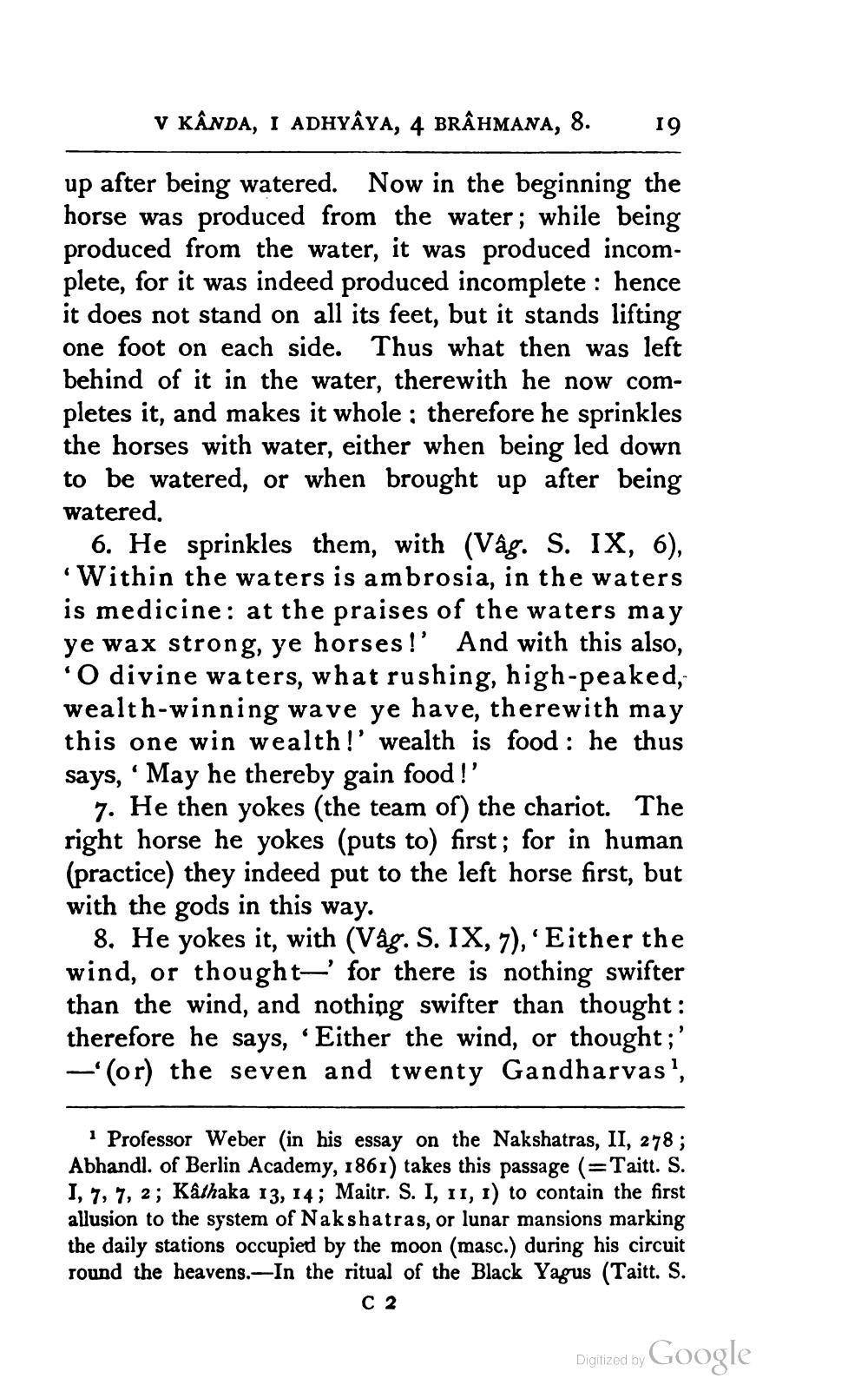________________
V KÂNDA, I ADHYAYA, 4 BRÂHMANA, 8.
19
up after being watered. Now in the beginning the horse was produced from the water; while being produced from the water, it was produced incomplete, for it was indeed produced incomplete : hence it does not stand on all its feet, but it stands lifting one foot on each side. Thus what then was left behind of it in the water, therewith he now completes it, and makes it whole ; therefore he sprinkles the horses with water, either when being led down to be watered, or when brought up after being watered.
6. He sprinkles them, with (Vág. S. IX, 6), Within the waters is ambrosia, in the waters is medicine: at the praises of the waters may ye wax strong, ye horses!' And with this also, 'O divine waters, what rushing, high-peaked, wealth-winning wave ye have, therewith may this one win wealth!'wealth is food : he thus says, “May he thereby gain food!'
7. He then yokes (the team of) the chariot. The right horse he yokes (puts to) first; for in human (practice) they indeed put to the left horse first, but with the gods in this way.
8. He yokes it, with (Vâg. S. IX, 7), 'Either the wind, or thought-' for there is nothing swifter than the wind, and nothing swifter than thought: therefore he says, 'Either the wind, or thought;' -'(or) the seven and twenty Gandharvas",
* Professor Weber (in his essay on the Nakshatras, II, 278; Abhandl. of Berlin Academy, 1861) takes this passage (=Taitt. S. 1, 7, 7, 2; Kathaka 13, 14; Maitr. S. I, 11, 1) to contain the first allusion to the system of Nakshatras, or lunar mansions marking the daily stations occupied by the moon (masc.) during his circuit round the heavens.- In the ritual of the Black Yagus (Taitt. S.
C2
Digitized by Google




